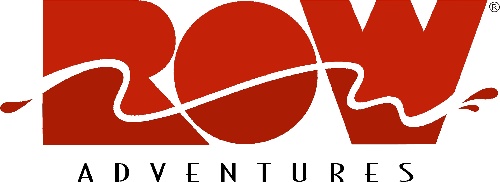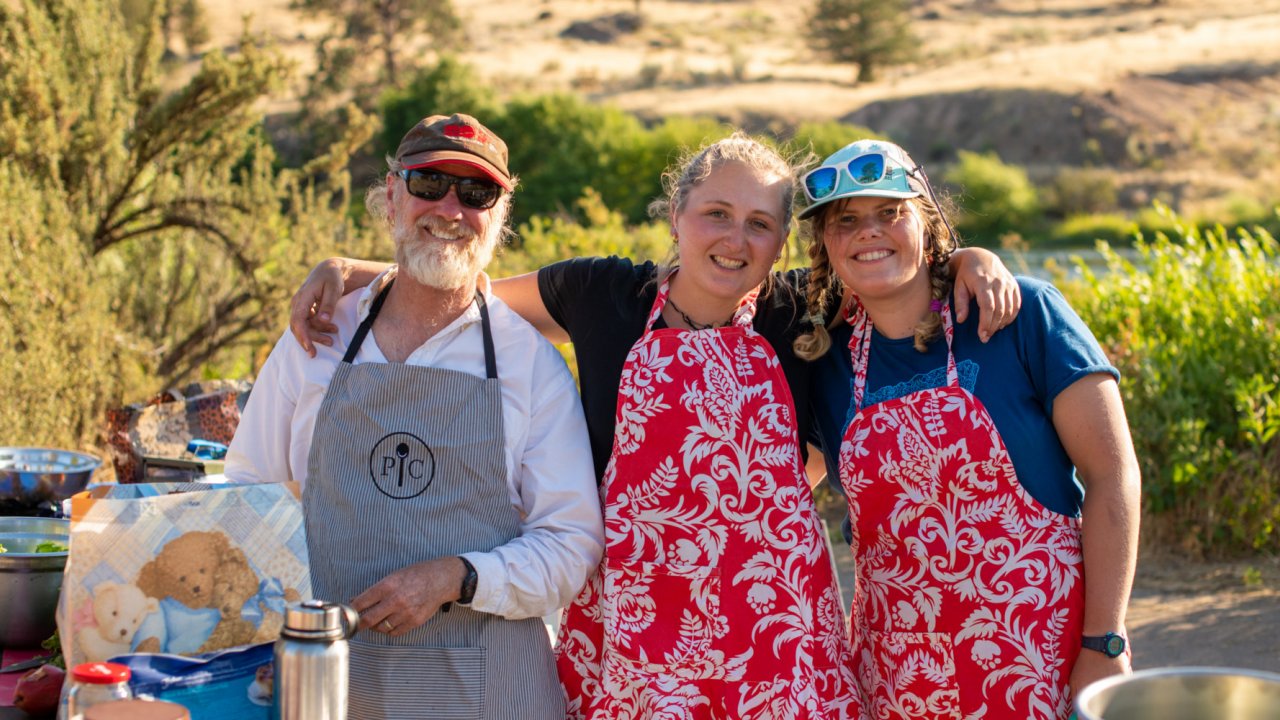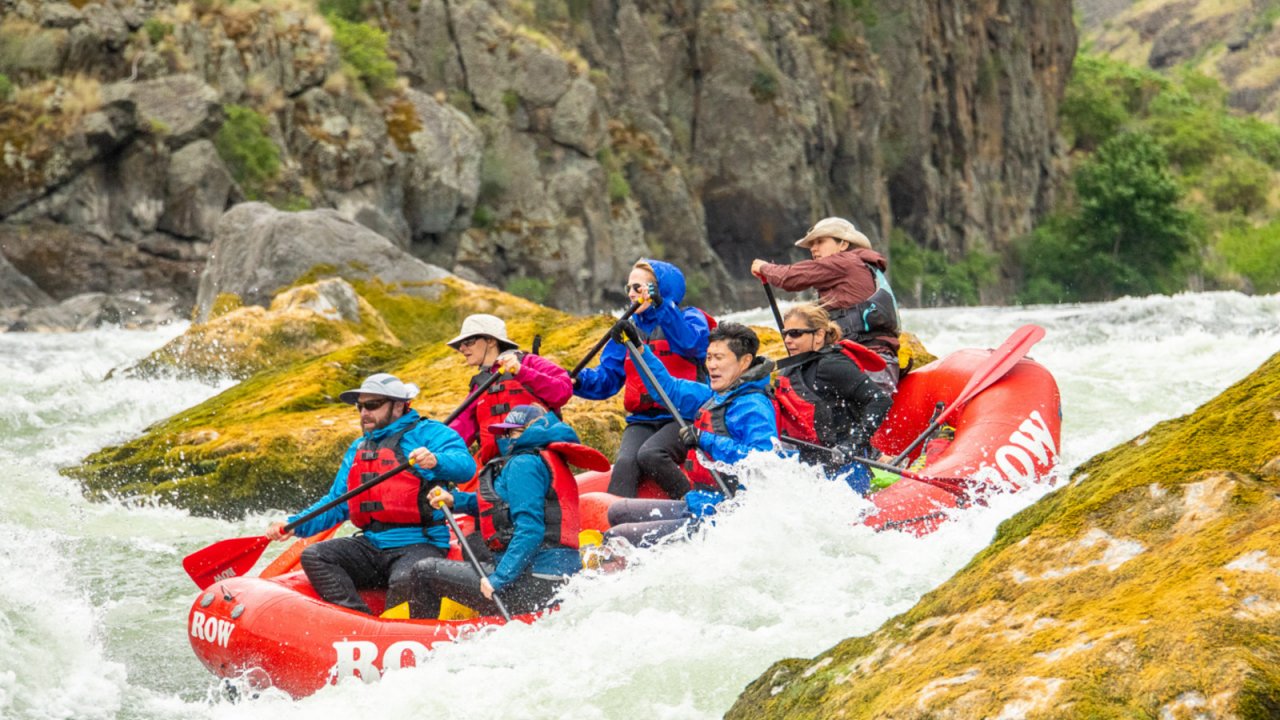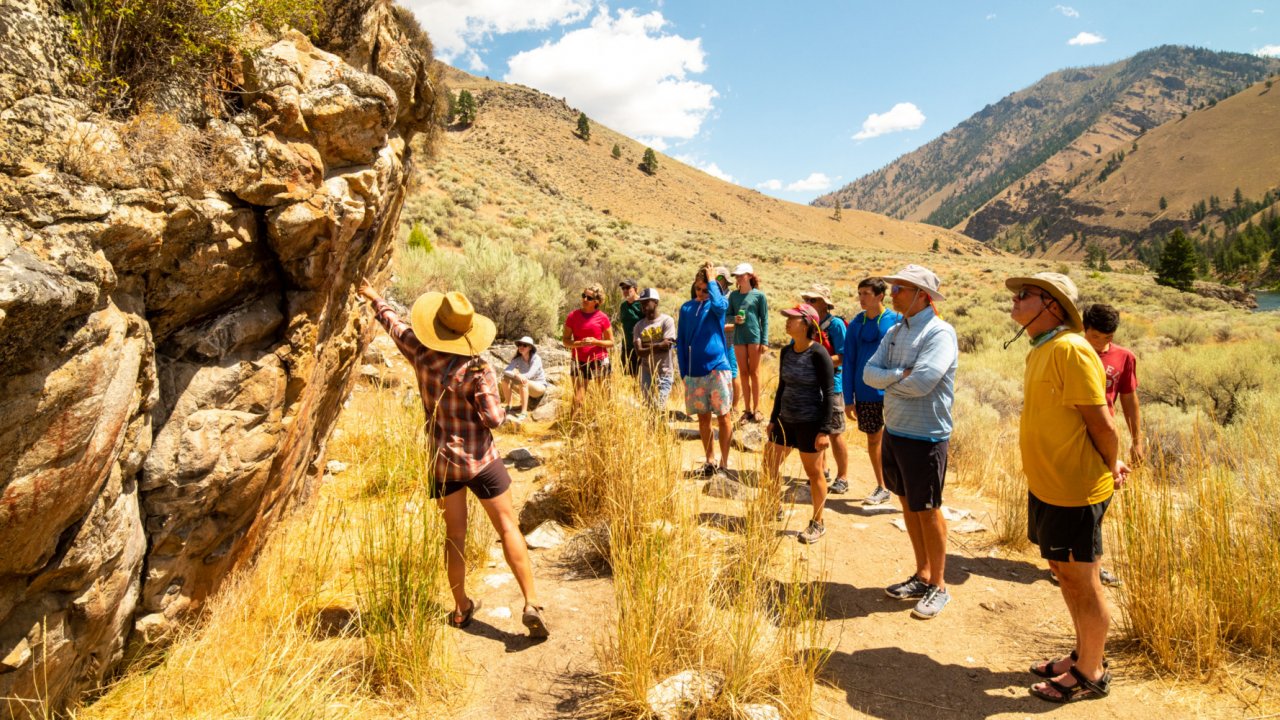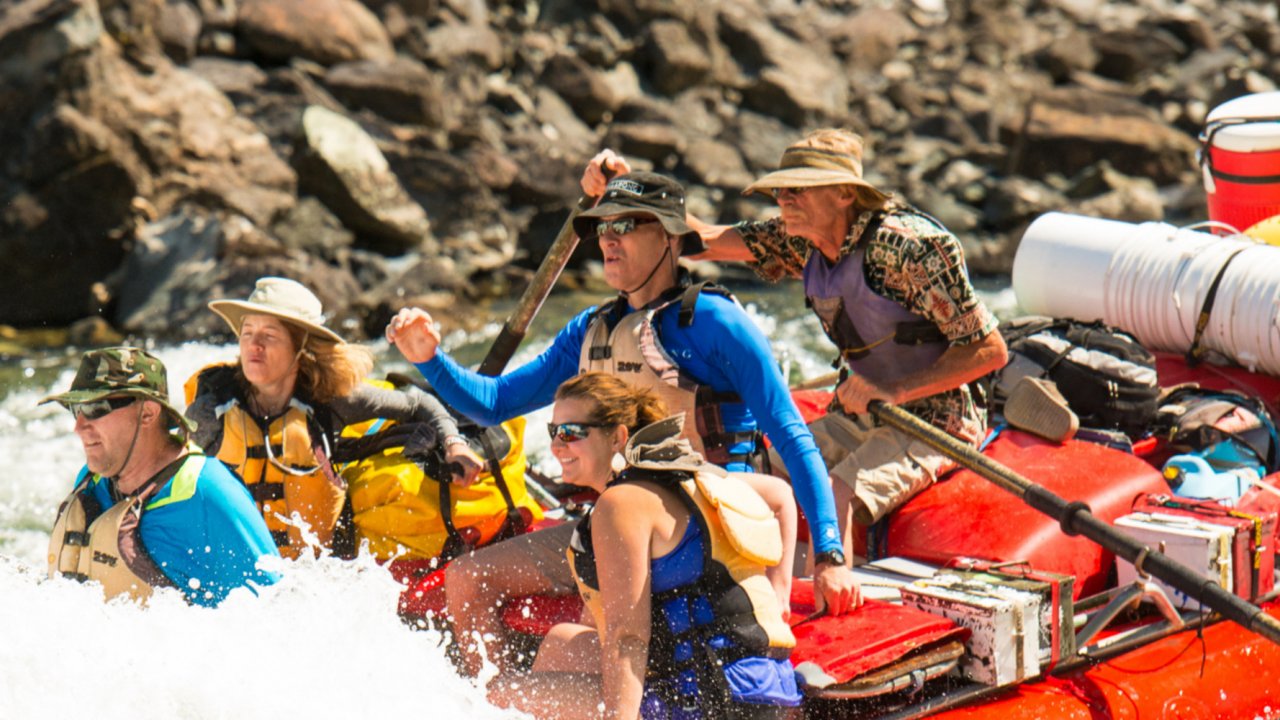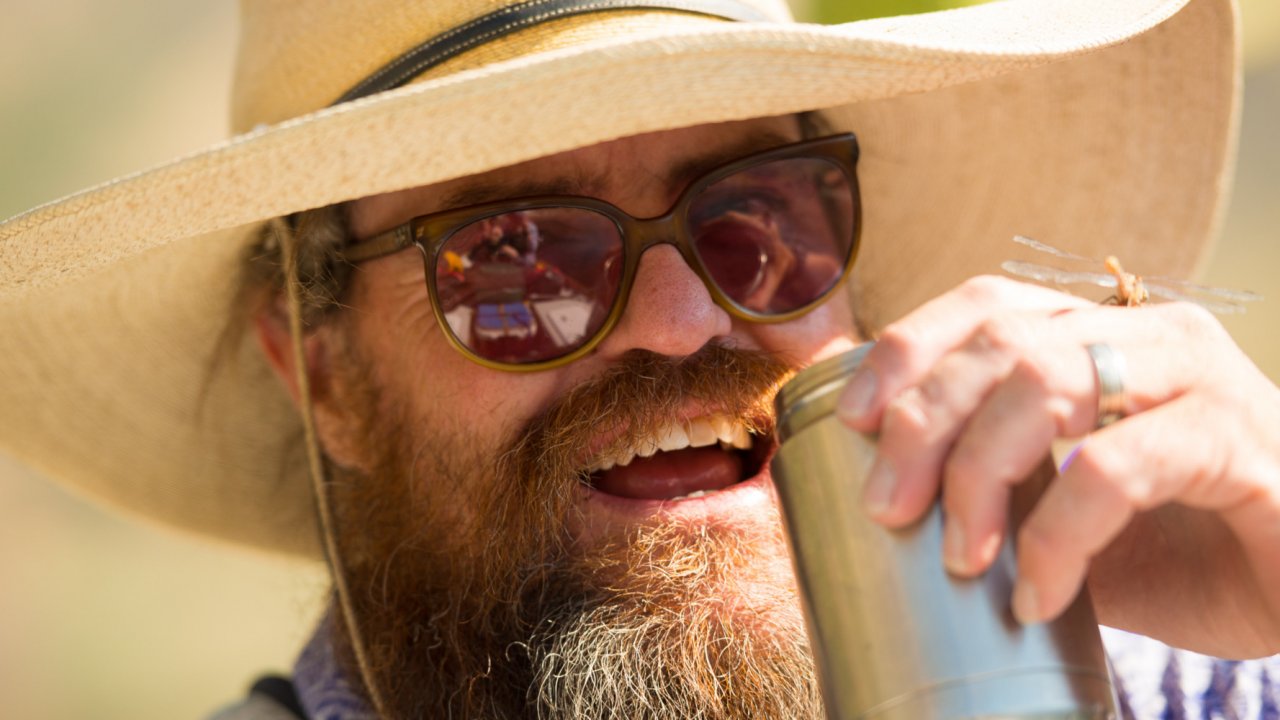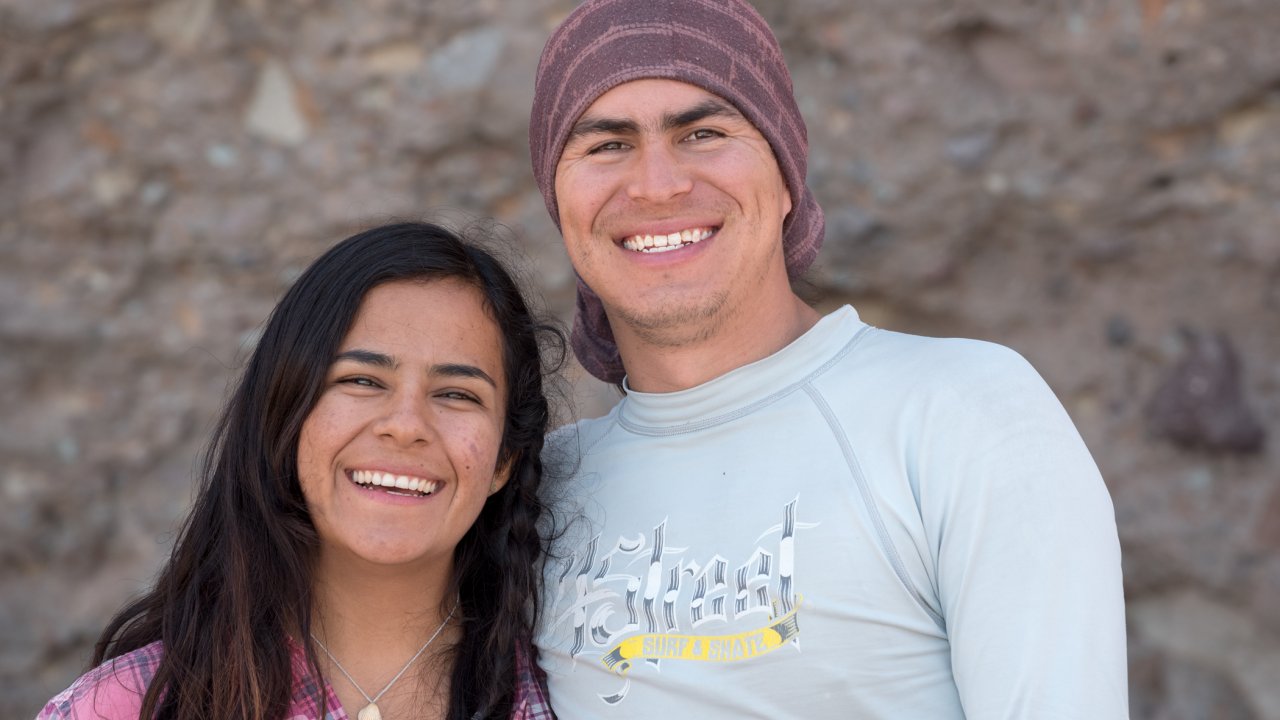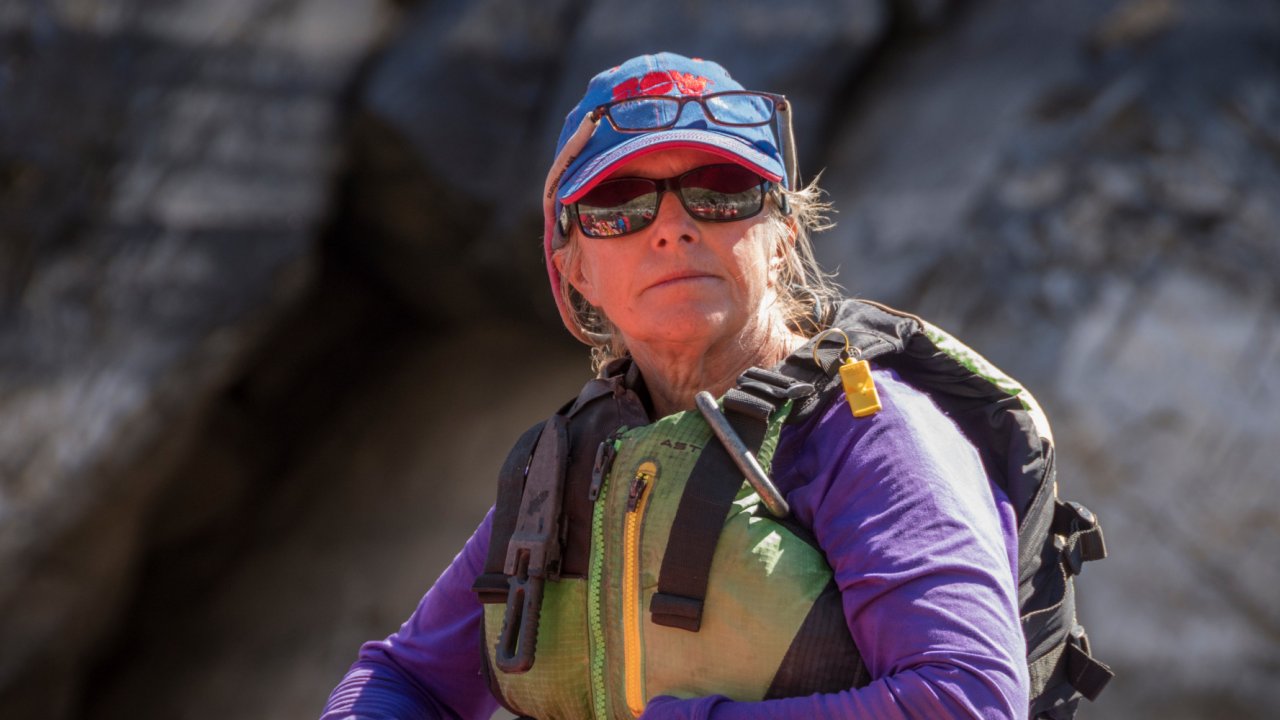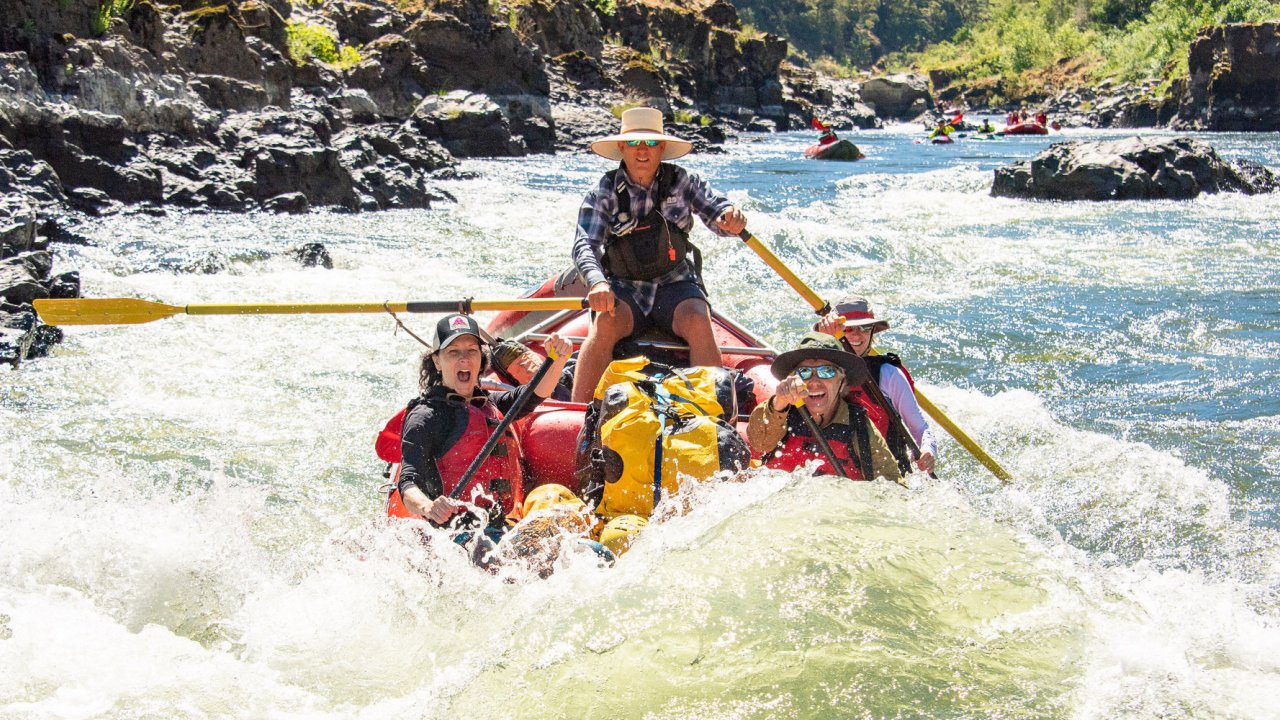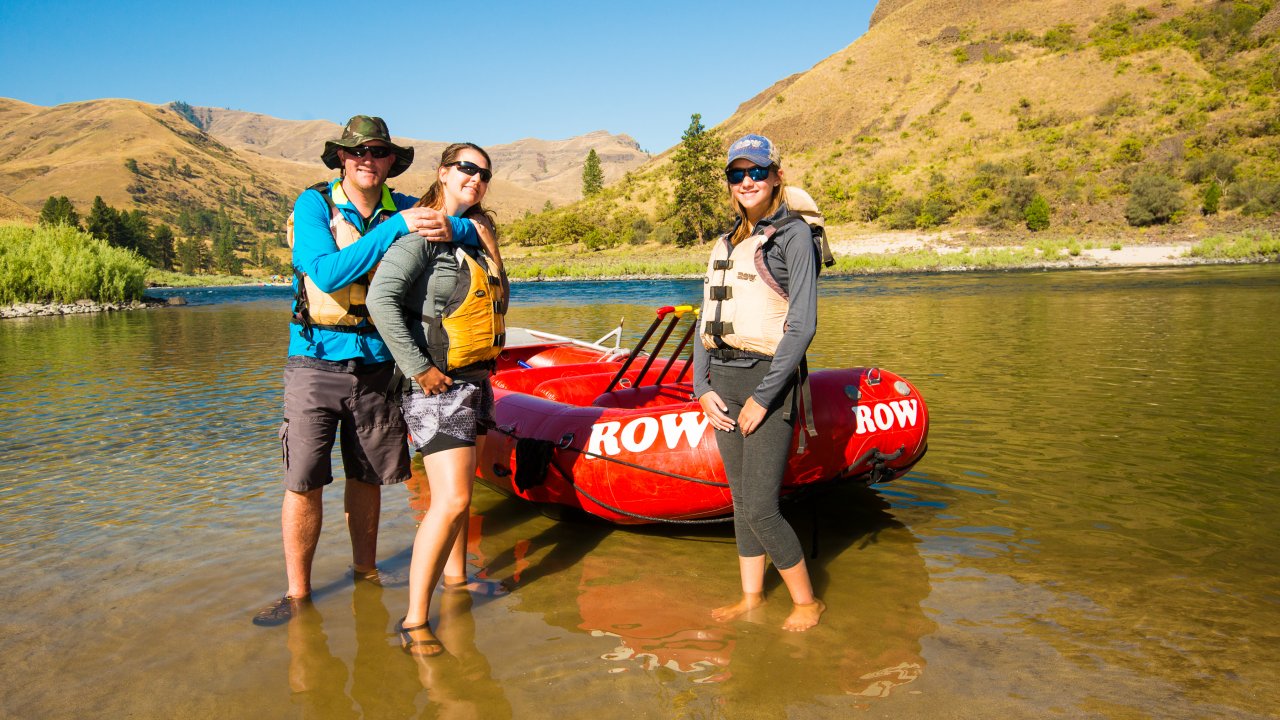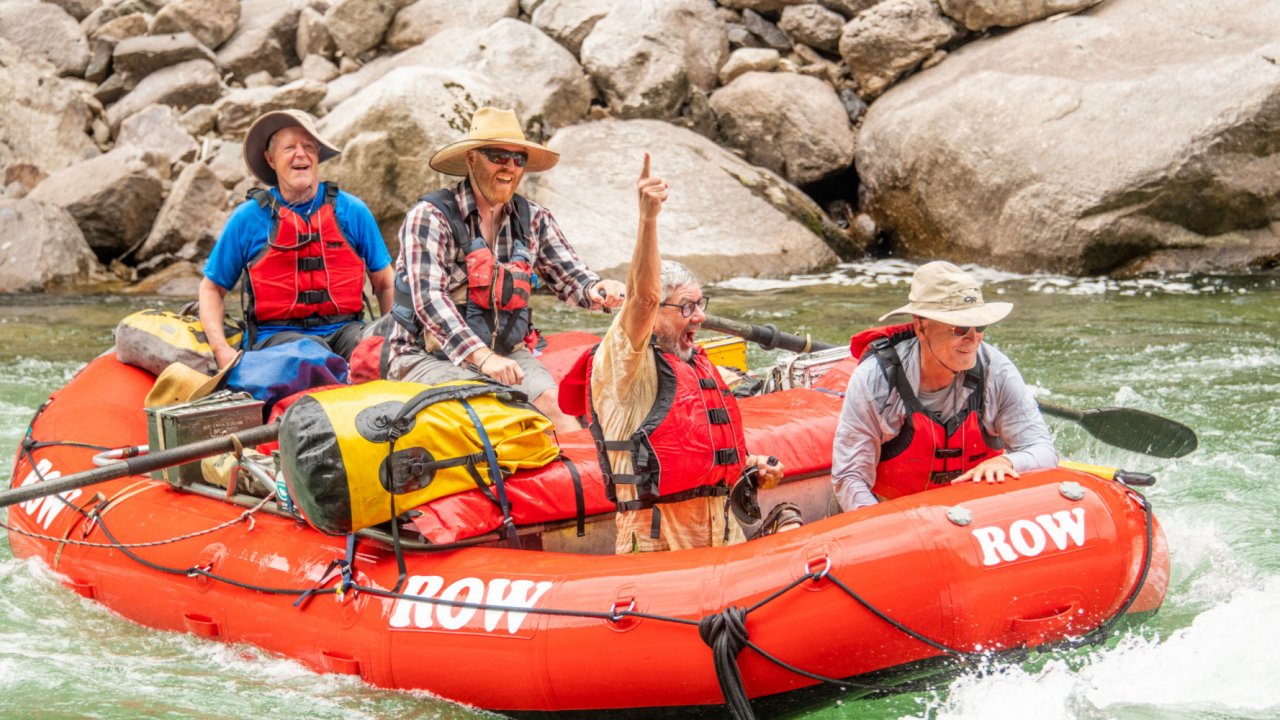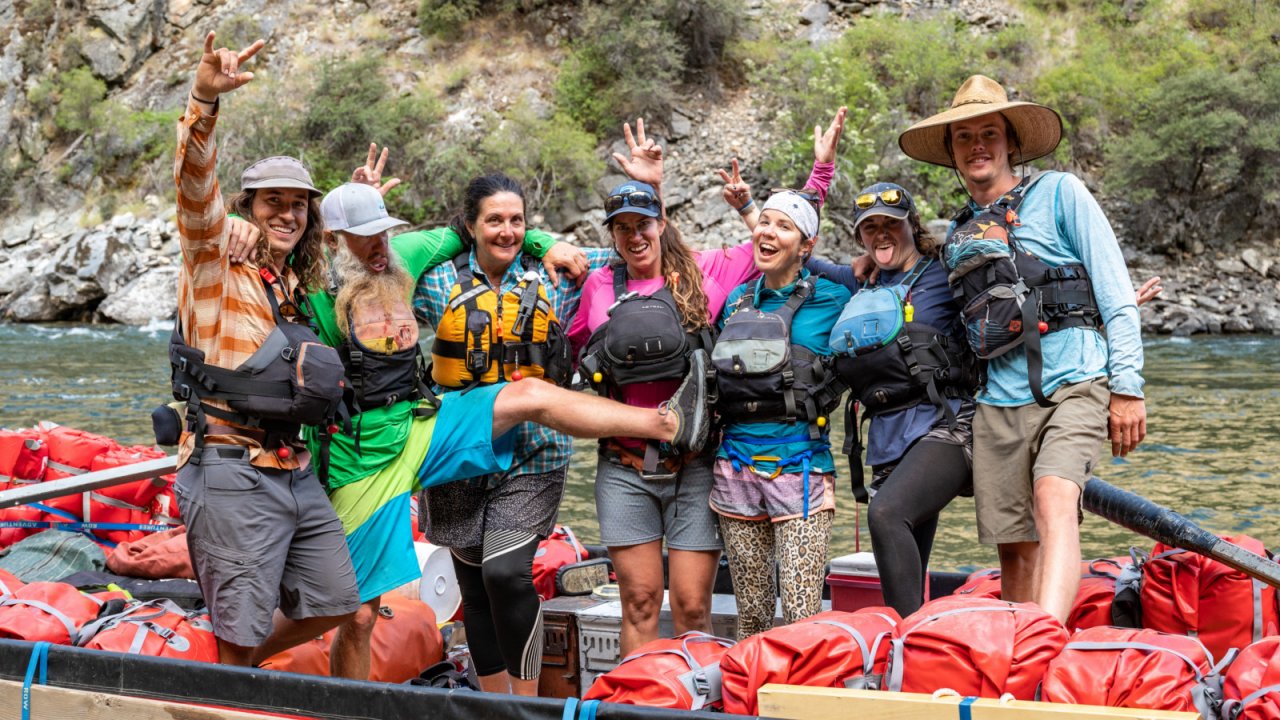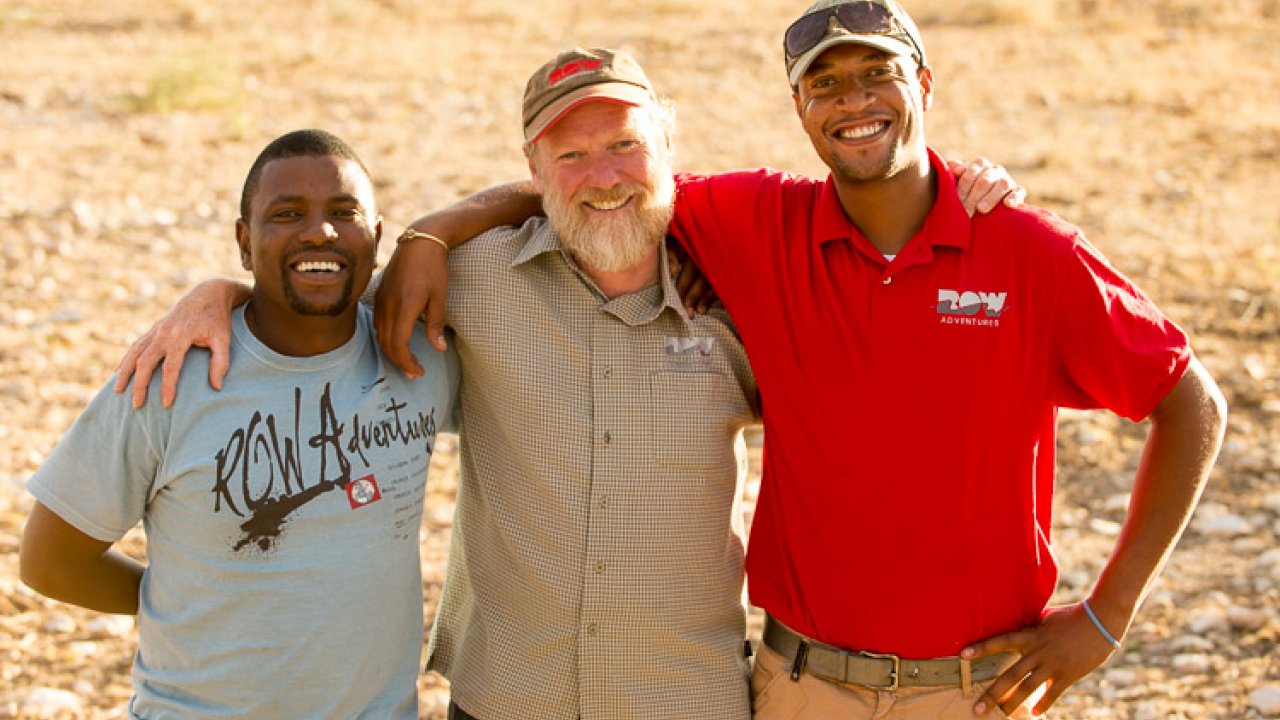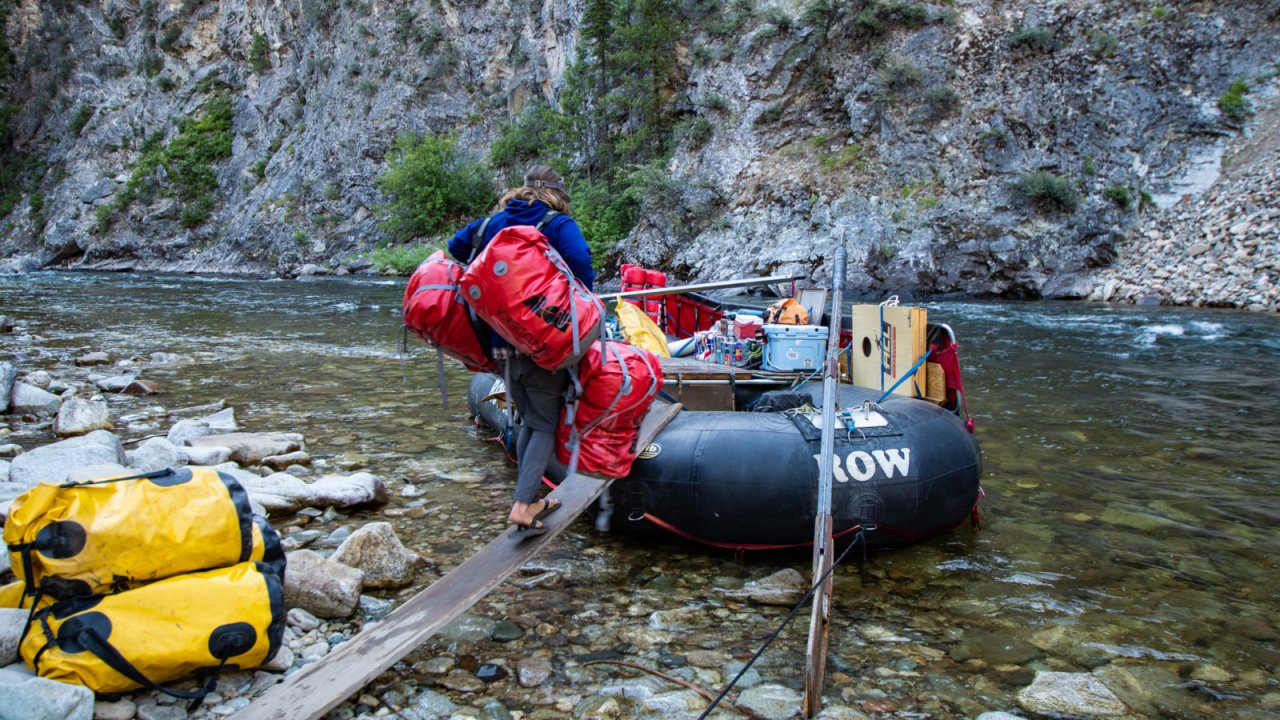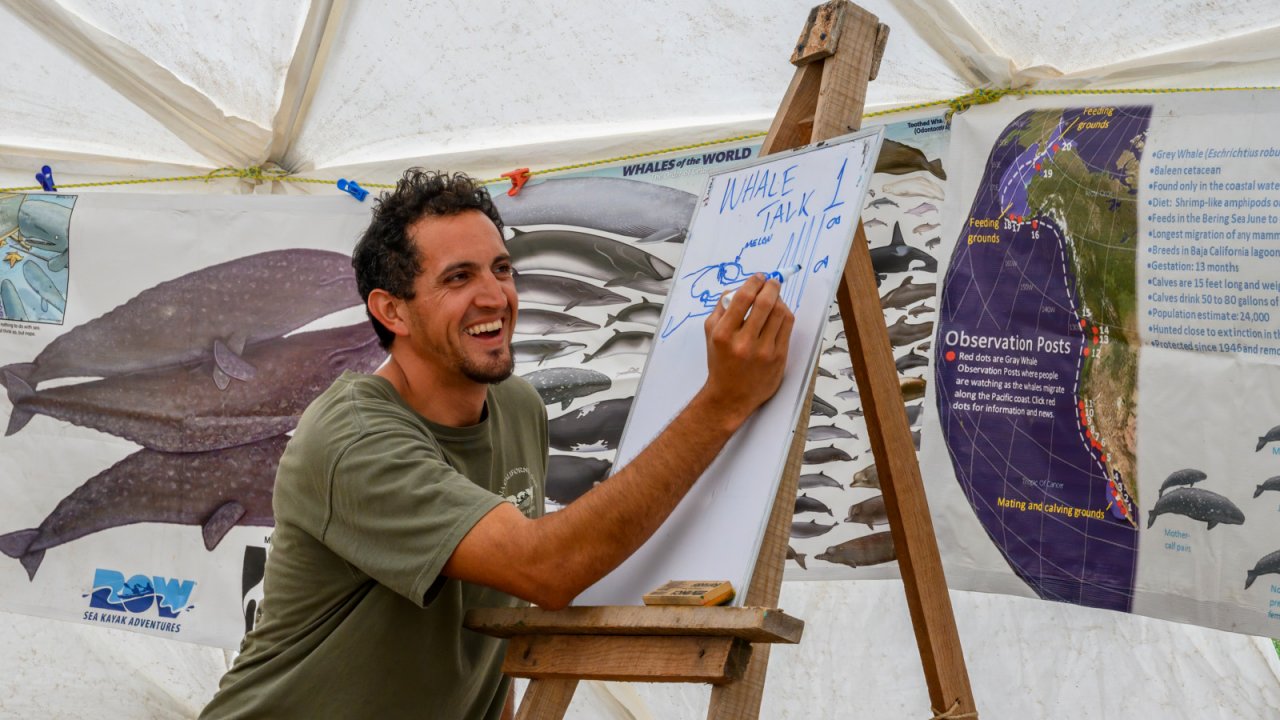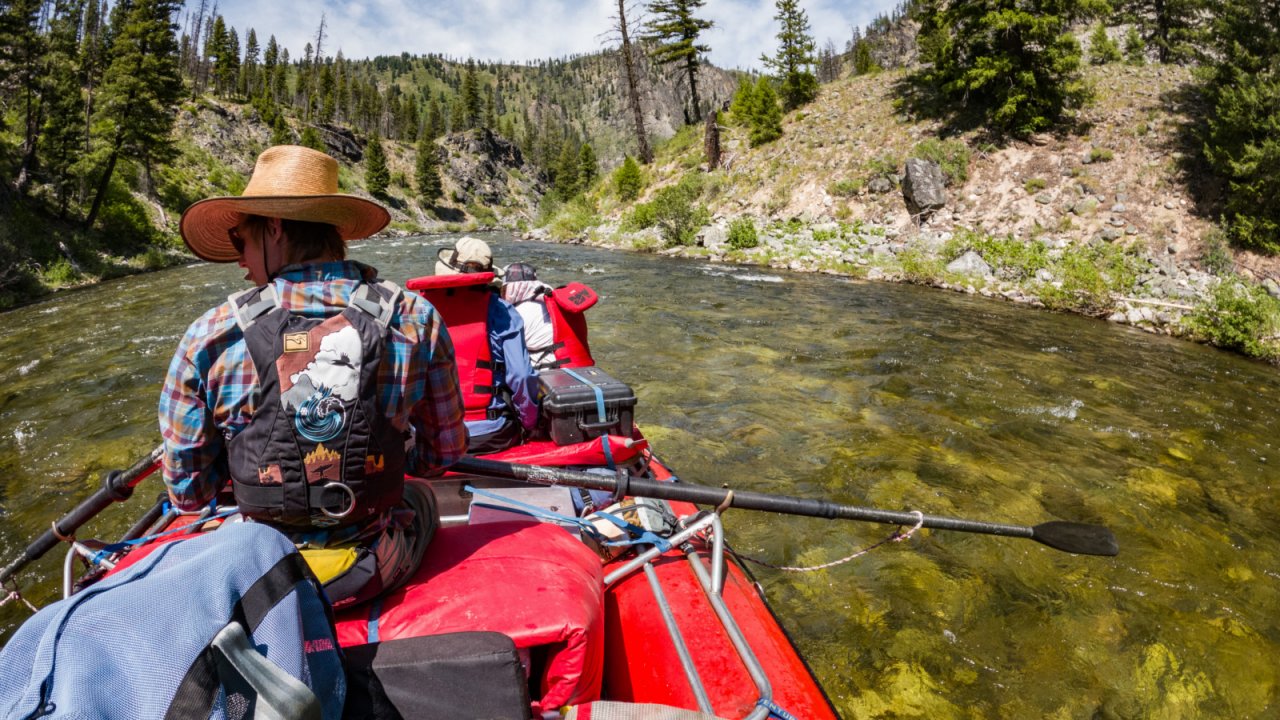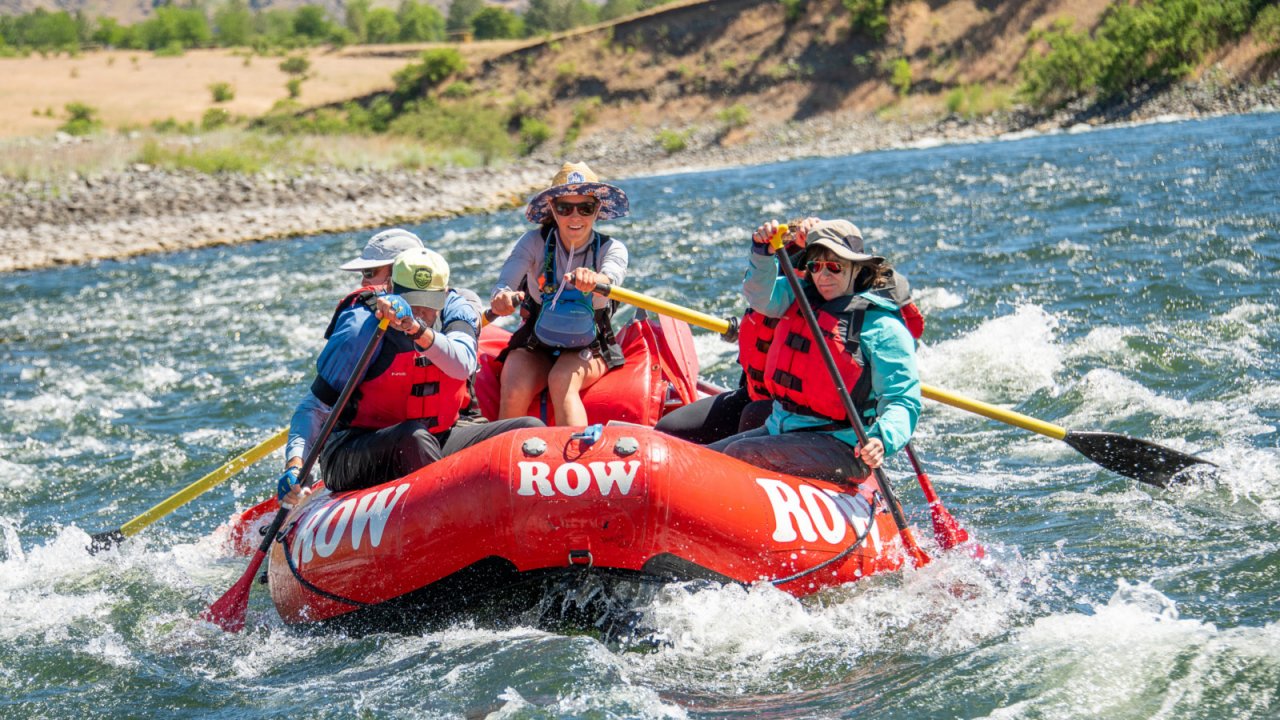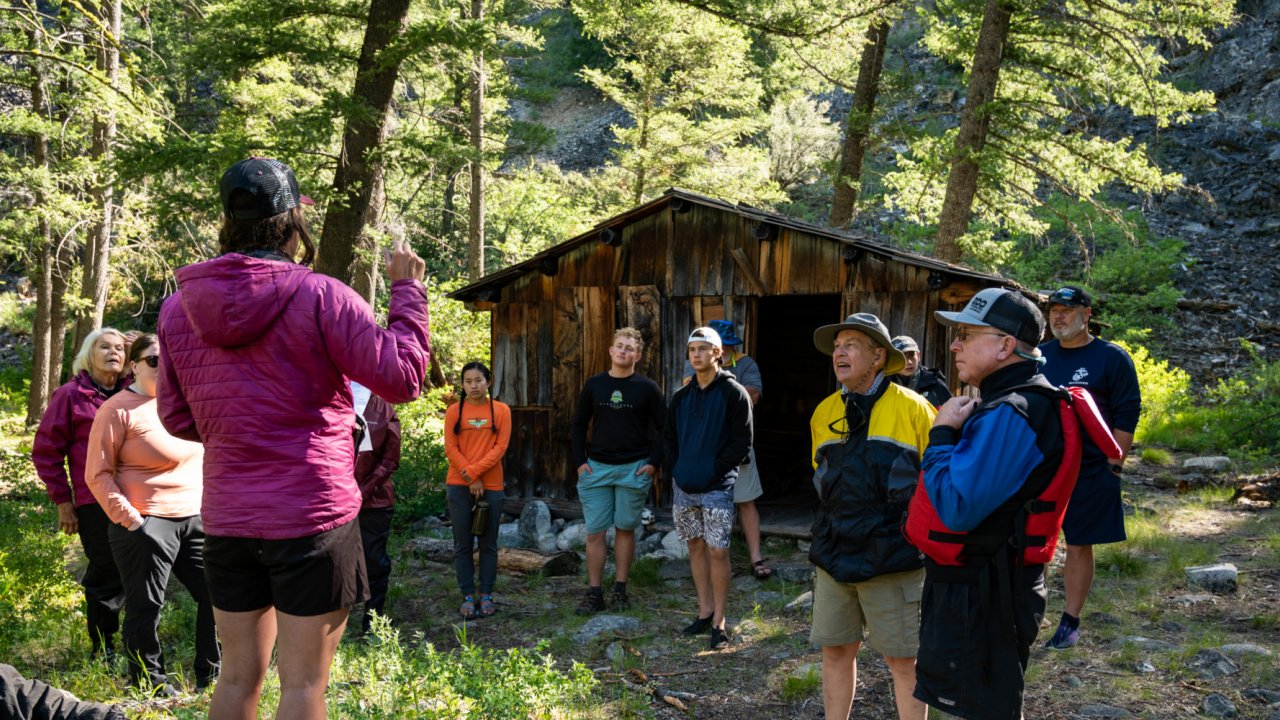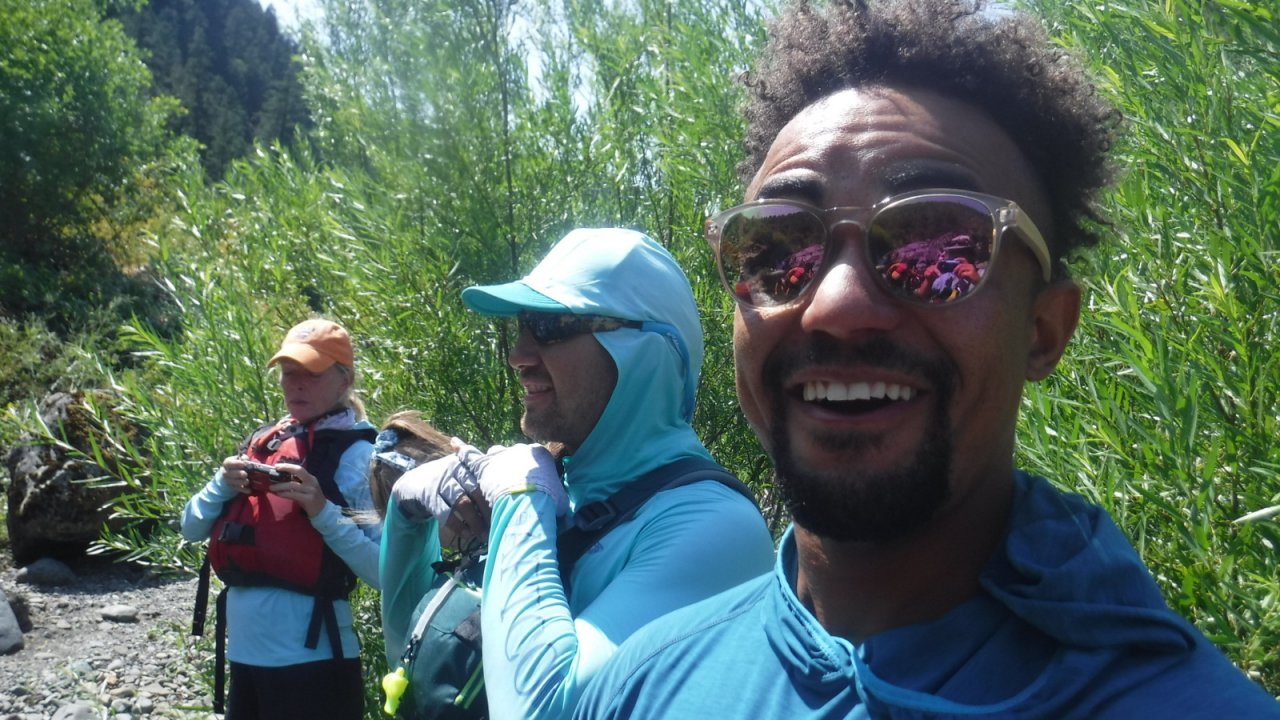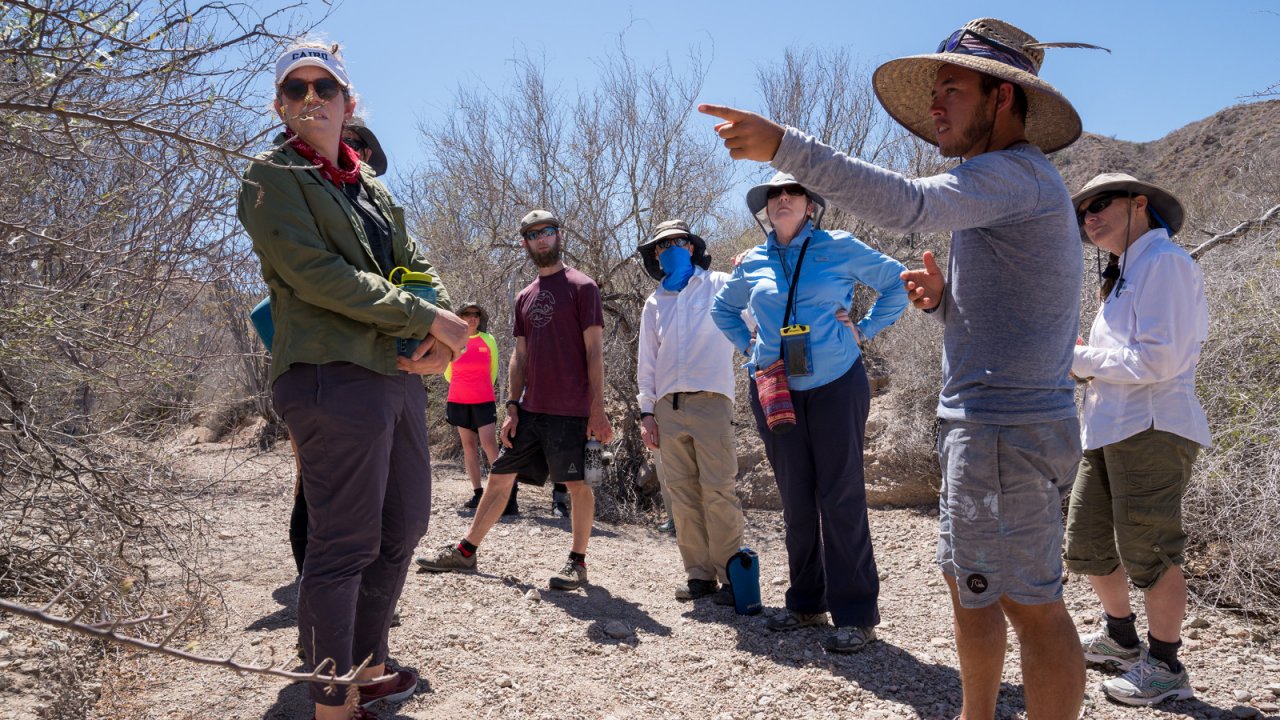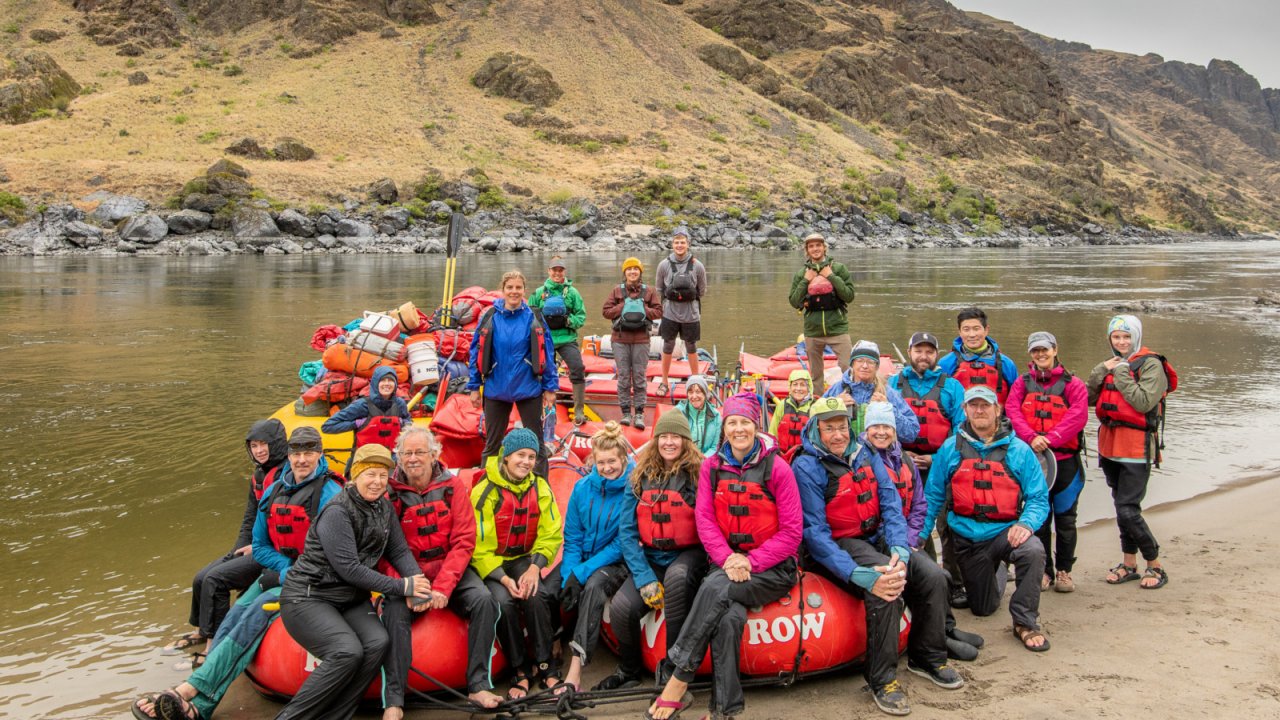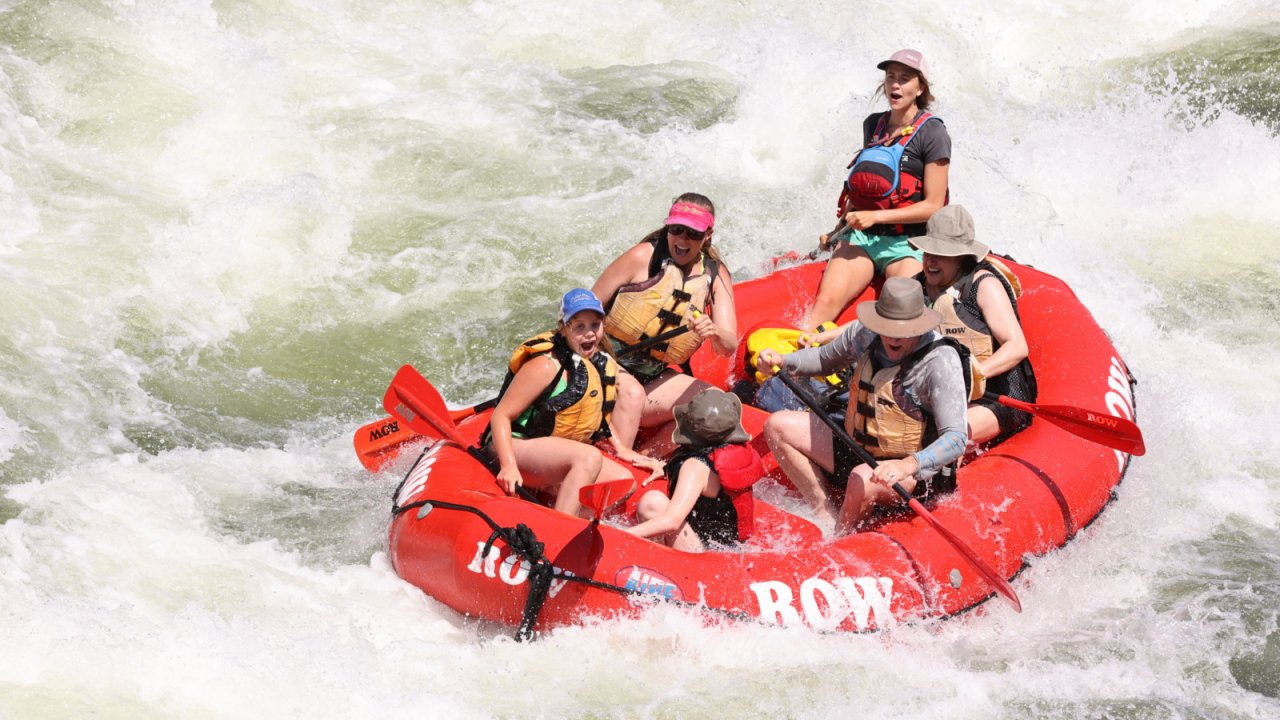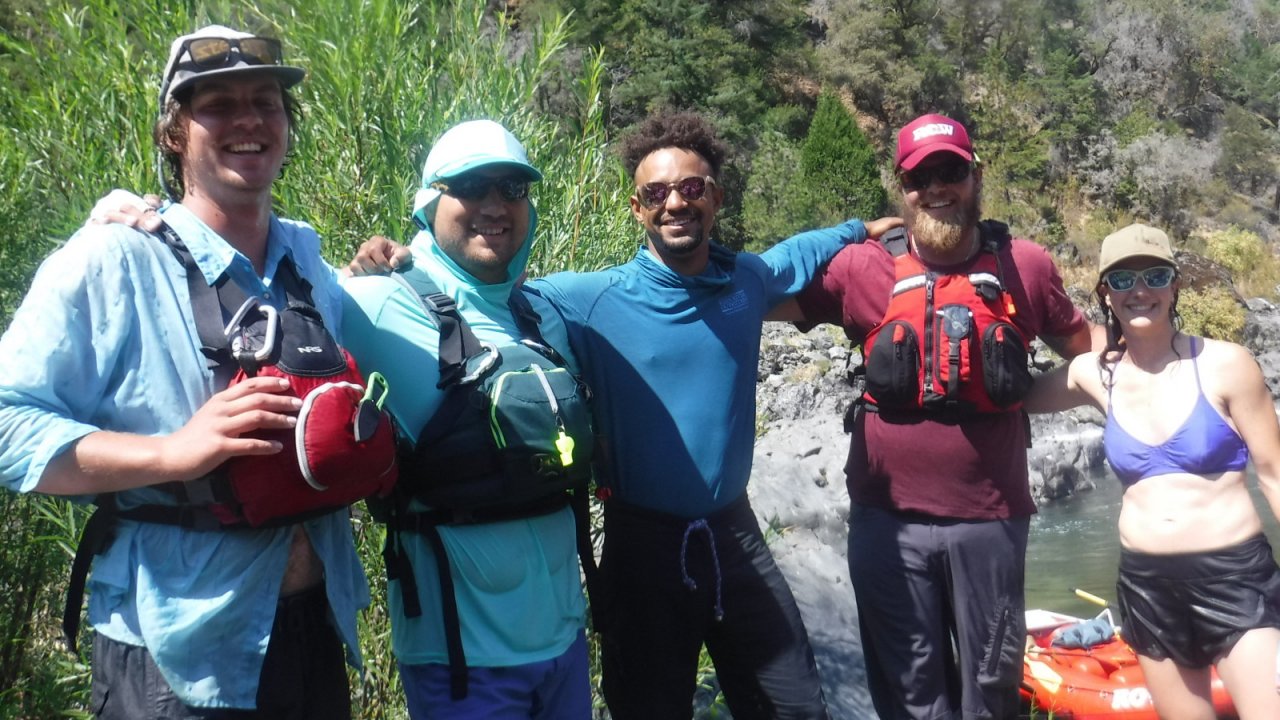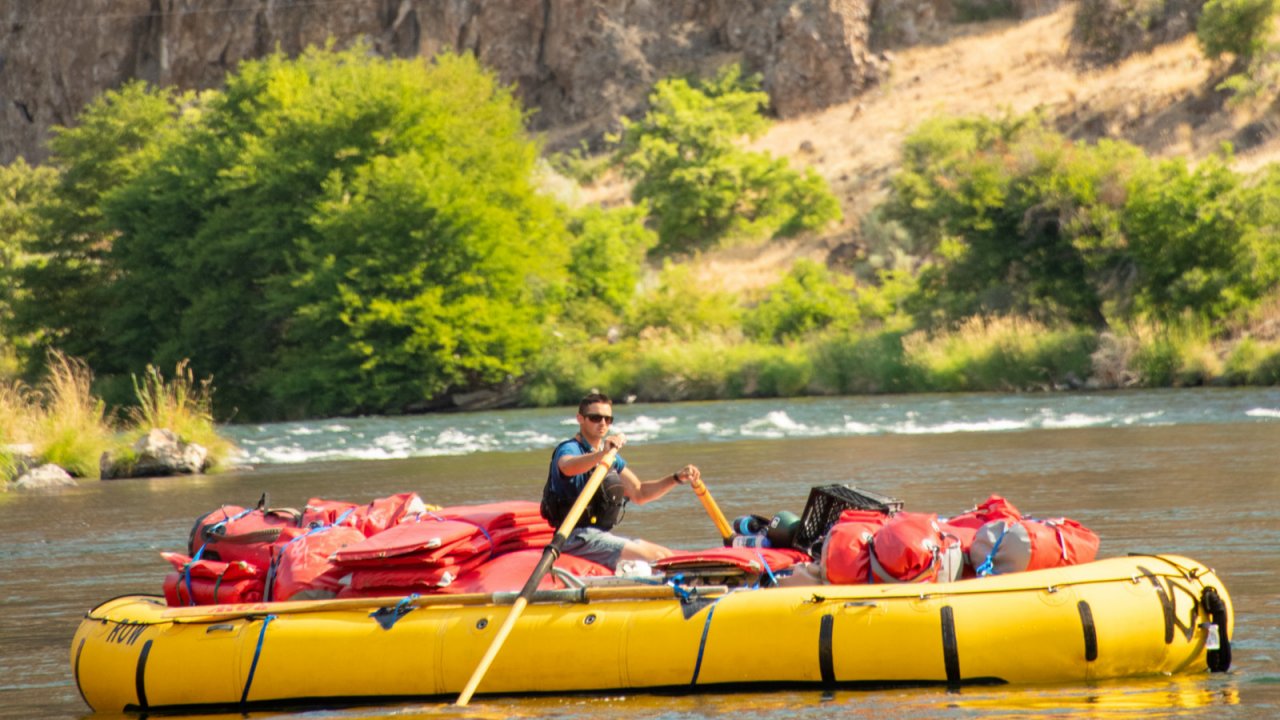Employment at the ROW Adventures Family of Companies
Introduction:
Founded in 1979, ROW started as a small company focused on multi-day wilderness rafting trips.. As the decades have passed, we have grown into an award-winning adventure and active travel company with trips around the globe. We are organized under three brands:
- ROW Adventures – Specializing in whitewater rafting, kayaking, canoeing, biking, fly fishing and hiking trips in the United States. Our core business, comprising 80% of our trips, is rafting. We operate on more Idaho rivers than any other outfitter and we are Idaho’s largest adventure travel company. In addition, we operate on five rivers in Oregon, three in Montana and one in Washington.
- Sea Kayak Adventures – Focused on sea kayaking and whale watching trips around the world, with our largest operations in Baja, Cuba, Ecuador (the Galapagos) and British Columbia.
- Adventure Unbound – Active travel trips outside the USA, with a cultural focus and a mix of moderate activities that can include hiking, sea kayaking, cycling, cultural exploration and wildlife watching.
The information found here is focused on employment for ROW Adventures. If you’d like to work for a top-rated rafting and adventure company that prides itself on professionalism, commitment to guest services, conservation and cultural/natural history interpretation, then apply to join our team!
What to Know About Being on the ROW Team
ROW Adventures is a place where you will find a team of people who are inclusive, value each other regardless of origins, life-paths or perspectives, and promote and defend the humanity and dignity of all people. Our team is our most valuable asset, and our success is the direct result of our outstanding, quality-driven team members who enjoy working and playing together. We enjoy a high return rate among our staff, yet still hire many new people each year. To meet some of our current team members, click here.
When applying for a position with us, know that we demand a lot from our staff. One reason is that we provide a level of service that is well above the standard in the rafting, adventure travel, and outdoor resort arena. Another is that we expect our guides to excel at cultural and natural history interpretation – meaning our guides are continually learning about the resources where we operate so they can share this knowledge with our guests in engaging, entertaining ways. We look for people seeking to set the high watermark in their personal and professional lives. If you are a friendly, self-starting, energetic, creative and hard-working person with a love for people and the natural world, and are interested in a long-term relationship with ROW, we want to hear from you!
ROW accepts applications for adventure field staff positions year-round. The bulk of seasonal hiring is usually completed by late March. All positions offer competitive pay, housing or camping at all outposts, free or reduced trips for friends and family, a Flexible Spending Account and other benefits. Employees have opportunities to experience an unmatched variety of rivers in the region, including Idaho’s Moyie, St. Joe, Coeur d’Alene, Lochsa, Middle Fork Clearwater, lower Selway, Jarbidge/Bruneau, Upper Owyhee, Salmon River Canyons, Snake River through Hells Canyon, and the Middle Fork of the Salmon; Montana’s Upper Missouri, Clark Fork and Blackfoot; Washington’s Spokane and; Oregon’s Rogue, Deschutes, Owyhee, Snake in Hells Canyon and Grande Ronde. Our USA adventure season begins in late April and runs into late September. Our peak season is from mid-June to late August.
ROW’s administrative offices are located in Coeur d’Alene, ID. With the exception of local Coeur d’Alene activities, all our trips are based out of dispersed locations. Our main whitewater rafting warehouse is located in Clarkston, WA. We also maintain a warehouse in Salmon, ID, and facilities in Syringa, ID and have outposts in Moyie Springs, ID, Spokane, WA, Superior, MT, Great Falls, MT, Maupin, OR and Merlin, OR.
Please take a look at the available positions and fill out an online application.
Thank you for your interest and we look forward to hearing from you!

Peter Grubb, Founder

We’re excited to partner with Black Folks Camp Too as a Unity Blaze Certified Partner! As guides and outfitters, we believe in creating inclusive adventures where everyone feels welcome. Join us in fostering unity in the outdoor community and beyond.
Meet more of the ROW team, hear what our guests' are saying, and check out some of our epic trips!
Explore Frequently Asked Questions Related to Guiding
Why would I want to work at ROW Adventures?
In the grand scheme of rafting companies, ROW is among the larger, not in terms of how many people we take on trips, but rather, in terms of how many wilderness rivers we run. Even though we operate on over 15 rivers scattered around 4 states, we nurture a family feel and atmosphere. Many guides who work with us, speak of their "ROW Family", often for years after they have left guiding and moved onto other endeavors. We sometimes travel together in the winter, go and work at the same ski resort, and generally keep in touch. We support each other through a healthy work environment, an acceptance of each other's strengths and weaknesses, and management that strives to be open and accommodating.
Because we operate on so many rivers, there are many opportunities for learning and growth and skills to learn including paddle raft guiding, rowing, Leave No Trace camping, overnight trip cooking and logistics, risk management, group management skills, teamwork skills, team leading, management and more. Many of our guides write to us in the years after they leave ROW to say that the skills they learned while working as a guide have been critical in their ability to succeed in other aspects of life including relationships and work.
Finally, getting to run a variety of rivers is another big attraction to guiding and working with ROW Adventures!
As a new-to-ROW guide, where am I likely to work?
One of the great things about working at ROW is the unmatched variety of rivers we run, like the mighty Lochsa, the big whitewater thrills of the Snake in Hells Canyon or the history laden Missouri. Some new-to-ROW guides will see or guide lots of rivers their first season while others may see only a few. Experienced new-to-ROW guides usually work on the Deschutes, Salmon River Canyons, Snake River in Hells Canyon or the Rogue. Very rarely does a new-to-ROW guide work on the Middle Fork of the Salmon their first season and only the most qualified join our Lochsa crew out of the gate.Brand new guides who attend our guide school typically do some additional training on the St. Joe and then work on the Clark Fork in Montana for the remainder of the season, perhaps with some opportunity to get on a multiday trip on the Salmon for further training. Where you work is totally dependent on your demonstrated on-water abilities, licenses (see Idaho License requirement below) and ROW’s needs. All ROW guides are expected to work on any river as needed (depending on qualifications and licenses) and to continue to develop their skills and licenses in order to be able to work on all the rivers ROW operates. All efforts will be made to keep guides in one location for multiple trips rather than bouncing from river to river. As bookings demand, guides will be required to move between rivers. Details of mileage reimbursement is provided in the pay scale.
What does a typical season for a first year guide look like?
Most guides arrive in May to attend the staff training trip as well as training on the Lochsa, St Joe or Snake River. After training, guides are assigned to a river based on their demonstrated ability, work ethic and ROW’s needs. While working early season day trips is more common, occasionally an experienced guide may step right into early season multi-day trips on the Snake, Rogue, or Owyhee. People who can work mulitday trips in June may be quite busy with trips on the Snake or Deschutes. For some day trip operations like the Lochsa, there may only be 2-3 days of work per week, and thus, many guides choose to take advantage of additional training opportunities, such as licensing on other rivers that ROW runs, to best position themselves for more work later in the season and future years. Others take advantage of the off days to explore the area’s rivers and mountains before the season ramps up in July. During July and August, work is generally quite consistent regardless of seniority, with days off infrequent. Most experienced new-to-ROW guides who attend our multi-day training work multi-day trips while brand new and lesser experienced guides work on day trips during these months. Guides stay very busy until late August. Managers and senior staff receive the first crack at September work. After their last trip of the season, all guides are required to put in a minimum of 15 hours of warehouse work to help shut down operations.
I come from a day-guiding experience. What differences are there in a multi-day guiding experience?
Many new-to-ROW guides have made the transition from day trips to multi-day trips at ROW. For those who are inclined, this change can come from a passion for rivers, the desire to further your career, or for the excitement of spending more time with guests in the amazing spaces we enjoy. Over the years we have found that for some, this transition can be a challenging one. Multi-day guiding is an experience that is immersive and, at times, all consuming. There are days on the river when you have to push against the wind all day, get to camp late, and then immediately begin cooking because you are on cook crew. At other times, the days that are lazy and fun on the water and then you get to relax and enjoy a special camp or hike at the end of the river day. As a part of the guide team you have to work together through the hard and easy with a smile on your face and sense of humor. You are doing all of this while taking care of our guests who are always curious about you and your experience. It is often not easy, but those that enjoy this work often really enjoy it a lot.
How does guide licensing work in Idaho?
The state of Idaho requires that all guides be licensed in order to guide commercial trips. Effectively, this means that guides with at least 500 miles of commercial experience must float a stretch of river in a raft before commercially guiding it. Guides may license on either a training trip or by accompanying a commercial trip. This trip is often four to six days in length. Guides who accompany a commercial trip are expected to work as a guide. On licensing trips, whether these are accompanying a regular commercial trip, or a specific training trip, compensation is limited to food and teaching. We do pay guides a year-end bonus for attending our "all staff training trip" in May. Because a licensing /training run has to be completed on each section of river prior to taking guests, a guide may have 2-3 of these training trips during their first season. Complete information on this process will be provided upon job offer. Individuals with prior fish and game violations or criminal convictions (including misdemeanors) should be prepared to make full disclosure to ROW and the Idaho Outfitters and Guide Licensing Board in order to get a license (such violations and convictions do not necessarily disqualify you from obtaining a license).
Do I need a license to guide rivers in other states?
Neither Oregon nor Washington require any official license to guide. In Montana, no license is required on the Missouri. Guides must have a license for the Clark Fork river which is simply purchased from an authorized Montana Fish, Wildlife and Parks vendor. If assigned to work on the Clark Fork, your area manager will help explain the process. Independent of state requirements, ROW requires that all guides see each river at least once and be approved by a senior guide or manager before guiding commercial guests.
If I am offered a job, am I guaranteed work?
ROW conducts an intensive hiring process to try and find the best candidates for the job. We offer jobs only to those candidates we believe have the tools to succeed at ROW and invite them to training. On very rare occasions training reveals that new hires do not in fact to have these requisite skills, abilities or attitude or turn out to not be a good fit for ROW. On rare occasions we are forced to part ways prior to commencement of work. This has only happened a couple times in ROW’s 43 year history. Therefore all job offers should be considered provisional until after the successful completion of training.
How does ROW schedule guides?
We look for and schedule guides who strive for the high watermark in their professional and personal lives, have the goal of providing high quality river trips and have a positive, helpful and constructive attitude. Scheduling also takes into consideration guides’ on-water skills, license status (such as Lead Boat), and additional skills that compliment the assigned crew for the trip, (such as a WFR, Sweep Boat Driver, guitar player etc.). Other factors considered include a balance of male/female guides, guides with proven ability in interpretation and other guest-driven factors (for example a trip that requires all male guides). Seniority and length of individual commitment to the current season are also considered in conjunction with the above factors but seniority alone is not a deciding factor. ROW does its best not to over hire.
I have previous paddle guiding experience but not rowing. How will this impact my opportunity for work?
ROW often hires guides with only previous paddle guiding experience. ROW seeks to hire individuals who want to grow and develop in their professional and personal lives. For many raft guides, moving from paddle guiding to rowing and single day trips to multi-days is an important part of their professional development. Proficient rowing ability however, is an integral part of guiding multi-day and high water trips at ROW. Basic rowing instruction is provided during training. The development of proficiency in these techniques will certainly require additional time and motivation on your part. It is up to you to put in that time as well as create and take advantage of opportunities for further practice and instruction beyond what is provided in training. The bottom line is that guides who cannot safely row guests will guide multi-day trips infrequently and then primarily as a paddle guide.
Does ROW have a typical way it likes to run its trips?
ROW has worked hard in its more than 43 years of providing trips to establish systems and processes to make trips run smoothly. Our trips are not haphazard or thrown together randomly, but rather, carefully choreographed. For example we run our trips on a schedule, we have set menus, we have set procedures at our put-ins and take-outs. Our systems are meant to simplify tasks and alleviate the concern over the proper way to do things. We believe that with these systems guides do not have to waste time and energy on regular tasks and processes. Instead they can focus on our guests and put their energy into ROW’s Mission, Vision and Values while on trips. Experienced new-to-ROW guides need to be prepared and willing to adopt our systems so all team members are on the same page.
Tell me about ROW’s emphasis on guest services.
One of ROW’s Core values is “Striving for the High Watermark – We provide a high-quality experience for our guests while building trust and friendship with them. We seek to fulfill guest expectations and to meet both expressed and unexpressed needs.” In order to set this high watermark in guest service, ROW guides are often expected to go above and beyond normal customer service. ROW guides regularly set up and take down guest tents, cook all meals, clean all dishes including guest dishes and lead hikes, campfire activities and interpretive presentations. We expect ROW guides to try to anticipate guests’ needs and do what is necessary to provide the best service possible.
Natural and cultural history interpretation on its trips - What is expected from guides?
Bringing meaningful interpretation to guests is an important part of every ROW trip and a key part of the ROW difference. Meaningful interpretation helps reveal the places we recreate and turn a river trip into a more expansive journey of personal discovery. Interpretation is also one of the primary ways we connect guests to the land and hopefully plant seeds of care about the special places where we work. While we don’t expect all guides will become highest-level interpreters, we do expect all guides will strive to develop at least a basic proficiency in techniques as well as mastery of at least one presentation. To help achieve this expectation, ROW requires all new-to-ROW guides to complete a formal (addressed to the group) presentation on the topic of their choice that is relevant to rivers that ROW runs. Training in interpretive techniques is provided. More guidelines on how to complete this presentation will be given upon job offer.
How much am I likely to earn my first season?
A lot of factors influence how much money a guide will make their first season, including factors both within (availability) and without (like bookings) a guide's control. Guides who train hard, have a positive attitude and take advantage of early licensing opportunities typically earn more than those who don’t. Other factors include years of experience, the number and level of certifications (e.g. a WFR or Swiftwater training) that a guide has. ROW offers additional pay for these skills. Another factor is whether guides work on single or multi-day trips. On average most new-to-ROW guides earn between $3000 and $7000 in wages their first season. While it is ROW’s philosophy that we do not work for tips, gratuity is a part of our industry. Gratuity can quickly account for another 30% - 70% in earnings over the course of the season. A complete pay scale will be provided upon job offer.
Does ROW provide complimentary housing for its guides?
Yes. All of our warehouses and outposts have either sleeping facilities or space for camping. Guide lounge, wireless internet, bath and basic kitchen facilities are also provided. Guides typically choose to camp, sleep in their vehicle or use one of the cots or indoor sleeping spaces depending on their personal preference. There is no charge to guides for use of these facilities.
IMPORTANT EXCEPTION: Unfortunately due to cost, ROW is unable to provide housing for ROW Adventure Center Activities Guides hired for ROW’s Spokane and Coeur d’Alene operations at this time. Guides hired for these operations must secure their own housing.
Why do you charge experienced guides for training?
While we recognize that a new-to-ROW guide brings a lot of knowledge (that is why we hired him/her), we also know a new hire has a lot to learn about the way ROW operates. We take great effort and incur substantial cost to provide quality, comprehensive training to all our staff. The fee guides pay covers only a portion of what this extensive training actually costs. Importantly, the payment also demonstrates his or her commitment to the job agreement. With that said, we do not want this fee to become a bar to employment for qualified candidates. In such a case, please ask to discuss the matter.
What is ROW’s policy on drugs and tobacco?
ROW is a Drug and Tobacco Free Workplace. Guides are in a ‘fishbowl’ while on our trips and we believe it is important for guides to model healthy lifestyle choices, especially around children. Our drug-free policy is also an important part of our risk management practices. We have a company culture that does not include the use of drugs, which includes federally illegal drugs or controlled substances without a prescription. Should there be an incident, we do drug test for cause. Drugs (including Cannabis) as well as Tobacco (including cigarettes and chewing tobacco) may not be used at any time on a ROW trip, ROW property or in a ROW vehicle. A complete outline of our policy will be provided upon job offer.
Can I bring my dog?
Out of consideration for your fellow employees, our guests and ROW property, please leave your pets at home. ROW does not allow employees to house pets on ROW property or accompany trips.
